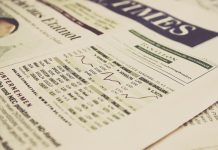
The German economy fell by 2.2% in the first quarter of 2020, with the coronavirus pandemic pushing the European country into recession.
This was the biggest quarterly decline the country has experienced since 2009, under the global financial crisis.
German recession
The Federal Statistics Office report was released as the country implements its initial tentative steps to lift the lockdown. Business establishments are starting to reopen, students will slowly return to schools and football games are being held behind closed doors.
The statistics office also reported a revision of economic data from the fourth quarter of 2019, revealing a 0.1% contraction. This means that the country's gross domestic product (GDP) growth has been negative for the past two quarters, which technically means it is in a recession.
The figures were consistent with market expectations as the German economy was already unimpressive prior to the spread of the pandemic and amidst the US-China trade war, which hampered activity globally.
The statistics office issued a warning that the data were subject to extreme uncertainty, with the next estimate to be released on May 25.
While Germany has the largest economy in Europe, the decline is not as bad as other neighboring countries have recorded. France reported a a decline of 5.8% while Italy's economy fell by 4.7%.
This can partly be attributed to the German states' decision to allow factories and construction sites to remain open, as well as the national government's unprecedented $1.7 trillion rescue package
Reopening the economy
Germany is gradually reopening its economy while much of western Europe is trying to curb the spread of the coronavirus.
The country seemed to be handling the coronavirus outbreak relatively smoothly. The country is holding widespread testing and contact tracing. These efforts helped keep its death rate far lower than its peers.
At the end of April, the government allowed smaller retailers of under 800 square meters to reopen, as well as larger car dealerships, bike shops, and book shops.
The government allows these businesses to continue running as long as they observe hygiene and social distancing measures.
When it comes to reopening the economy, "Germany is in a better position because of more testing and contact data," Bill Blain, a strategist for investment firm Shard Capital, told CNBC.
"In the continuing absence of good data, the U.K. would be wise to watch carefully what Germany does," he added.
The decision of Germany on allowing some sectors to resume operations could give other European economies an insight into how consumers will behave, and consequently how the economy will fare.
A model for handling economic crisis amidst the pandemic
Guy Ryder, the director-general of the International Labour Organization (ILO), said that Germany’s initiatives to address its employment issue must serve as a model to the world. According to him, other countries should observe how Germany deals with the economic fallout of the coronavirus outbreak.
He said that countries like Germany were able to keep their citizens working during the 2008-2009 global financial crisis. They "enabled the continuity of processes and of institutions" and recovered quickly from the downturn.
He added that Germany’s “Kurzarbeit” or “short-time work” program during the current pandemic set an example as to how countries can address economic crisis.
Germany sent workers home and cut their working hours. However, the government pays around two-thirds of their salary.






